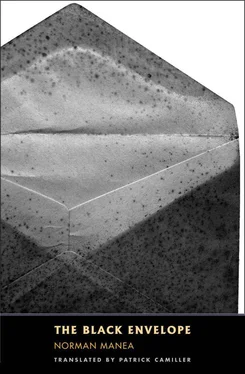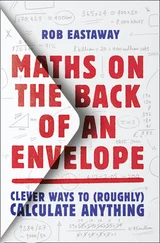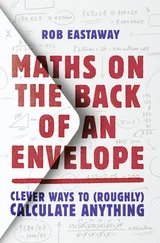“Let’s bring in the former bachelor, dead or alive. That’s what the gentleman in Buenos Aires wants. Crime, forgery, nightmares, revenge — he wants all of that. The full cast, with an honorarium guaranteed. He wants the truth. I want the truth and I’m afraid of the truth, and I don’t know if I really want it.”
“What truth?”
“What I sniffed out a long time ago.”
“Well? What letter, what bachelor?”
“We all remember the suspect. The chatterlogue. The nihilist. The bachelor. The loverboy. Twisted, stuttering, like anyone in love. Because he was head over heels. And he felt he was losing that accursed beauty of the accursed people. That other one had come to take her away. And then bang! — the last attempt. He copied all those slogans from their filthy green newspapers. Was it courage? An anonymous letter, yes, but we all sign, so it’s anonymous. He put that head in three parts instead of a signature.”
“What head? What three parts?”
“The three-headed emblem! That’s what gave him away, in fact. But Father didn’t tell anyone. Maybe he wasn’t even sure. Everything looked too much alike, and he was too afraid after a certain point. He, the philosopher, based himself on corruption. That’s why he got involved in wine, to have money that would be of help in hard times. Because the barbarians were coming: he knew the hysterias of history and of this part of the world. And where there’s no morality, not even corruption can always solve things. A society without principles! That’s what Papa was afraid of: that in madness not even corruption would help any longer. Take our young man— that bachelor. Who would have expected it? Only he had heard Father talking about Macrobius, Giordano, the three-headed emblem. But you know Father.”
“Come on, let’s go. End of joke.”
“Joke, you say. What am I? A child? This is called dreaming, not joking.”
“Enough, enough! Let’s go and eat: it’s late. Jeny has cooked a wonderful meal.”
The doctor stood up: he no longer heard the clown. Jeny had cooked something wonderful. No further delay was allowed.
“You’d do better to explain that business with the three-headed emblem. I don’t understand.”
“Is that all you don’t understand, old man? Well, think of those paintings of yours. Holbein, Vermeer, Titian.”
“On my wall? Are you mad? Titian?”
“That would have crowned it. They’d have arrested you and taken them away, in the name of the exemplary people thirsty for exemplary art. But the national masters — Pallady, Iser, Petra  cu— they’re not exactly nothing. And a Brauner and a Pascin, if I’m not mistaken.”
cu— they’re not exactly nothing. And a Brauner and a Pascin, if I’m not mistaken.”
“What about the emblem? What’s the connection?”
“The Egyptians, the Renaissance, Europe. The three-headed emblem. Triple superimposition: the emblem of prudence. That, I think, is what you talked to my father about when you were young. And he listened, the imprudent fool.”
“Me? You think I gave lessons to the old philosopher Marcus? I was just a kid. I wouldn’t have talked to him about something I didn’t even know.”
“No. Nor would there have been any point. Father was no great lover of art. It was a kind of desert for him. And he wasn’t mad keen on deserts.”
“So you see— What’s all this larking around? You don’t know what to cook up next to keep yourself amused, to fend off the boredom.”
“You’re right, Doctor. In fact, I came for another reason.”
“Aha. So you did come for a reason.”
“Yes. I couldn’t say straight out or it would have irritated you. I came to ask you a question and to offer you a consultation.”
“People ask me for a consultation, they don’t offer one. But what’s the question?”
“Why don’t we all go to prison? That is the question. Why don’t we have the courage? Explain to me, Goody-Goody, Mr. Psychoanalyst, why we don’t all of us suddenly decide to go to prison?”
“Huh! And where are we now?”
“Ah, so we’re already in prison, eh? Is that what you’re saying? Well, in that case the question has even more point. If we’re in prison anyway, what would be the difference?”
“There would be a difference. Jeny wouldn’t be able to cook those delicious things of hers. That’s just one example. I wouldn’t have those pleasures, nor would I be able to look after her, and you wouldn’t be able to play the detective. We don’t all have the same interests simultaneously. Nor the same pleasures. Collective suicides are very rare indeed, my boy.”
“Whom do you psychiatrists consult? Your stupid colleagues? Listen, I’ll offer you my fantasy. Or twaddle. Whatever you want to call it. Without charge.”
“Okay, I’ve made a note of that. At the first dead-end I’ll ask for you. For the moment I’m functioning satisfactorily.”
“There are enormous advantages. When the imagination is probing the forbidden zone, the protective perimeter, the point of fissure—”
“Okay. Explain it to me over dinner.”
“Crazy fantasy. And mine might tend toward such a performance; it may succeed where your medical torpor doesn’t even make the effort!”
“I agree,” sighed Dr. Marga. “But you actually came for something quite different from these speeches. Even an official psychiatrist like me can understand that much.”
“Maybe. But I don’t feel like it any longer. C’est fini! Not only a medical bureaucrat but even a thoughtless friend can grasp that. If he’s not too hungry or greedy.”
“Or too conscientious. Jeny is my patient. When the doctor’s late for dinner, she panics and has a nasty attack. But for you, my dear boy, a special favor — one last quarter of an hour,” and he looked at his watch.
“Goo-ood. Now, sir, what kind of country is ours?”
“Developing.”
“What do you understand by that?”
“You bore me, Tolea. Surely you read the papers. Output per capita, productivity, national income, God knows.”
“Yes, all that. And? Well, let’s look at it in a different way. What about before the war, or during the war? Were we also developing then?”
“On the eve.”
“Goo-ood. It’s economics, then, just that filthy economics. Did you know that in the forty years since the war our Latin auntie, France, has made an economic leap forward as great as that in the whole period from Louis XIV to the Second World War?”
“I don’t believe it.”
“I’ll bring you the proof. Goo-ood. But what has France given the world in these forty years? Nothing. A few trifles. Substitutes. And what France gave in the period from Louis XIV to the Second World War we all know.”
“It would have given now, too, don’t you worry. But things were different in those days. Elites, great minds, extraordinary personalities.”
“And now? Why don’t we have extraordinary elites now? But that’s not the point.”
“Bravo! Just as well we’re getting to the point. Seven minutes have passed.”
Dr. Marga got up from his chair, took off his smock, and put it on the peg. He removed his jacket from the hanger and slipped into it. Then he came back and sat down facing the professor. In the position of a listener in a hurry. Tolea was not in a hurry.
“Do you remember the bachelor?”
“There you go again.”
“Yes, the loverboy, the fool. Who wasn’t at all dumb and wasn’t going to be. But he was silent. I called him a fool. Who knows everything. He read, wrote, drew. You’re not going to tell me he wasn’t gifted. He was, the bastard. Even afterward he was never a simpleton. In the early postwar years he was a dogs’ photographer. Maybe you didn’t know. You see, you’re finding a lot out from me today. You should have accepted the consultation: you’d have had some instructive surprises. Not any old photographer wants to take pictures of dogs. Did you know that? You need patience and skill. Like with children, in fact. Haven’t you noticed how couples without children give birth to little curs? They adopt them, I mean. So the stutterer did that, too; the dog earned good money. Seven yellow folders with superb pictures of dogs. All breeds, all political convictions, all social classes, all erotic possibilities. Why are dogs photographed? Is that what you want to know? Well, as a souvenir — the sweet things. And to establish their breed. So many arguable cases, oho! There’s terrible racism among dogs, Doctor. You should see their style of apartheid. But let’s get back to the point. In his introverted youth, the dear boy was capable of holding forth about anything, agreed? He was capable, say, of talking about the iconography of the three-headed monster. About Poussin, Titian, the others, all the others; he was — tell me, eh?”
Читать дальше

 cu— they’re not exactly nothing. And a Brauner and a Pascin, if I’m not mistaken.”
cu— they’re not exactly nothing. And a Brauner and a Pascin, if I’m not mistaken.”










